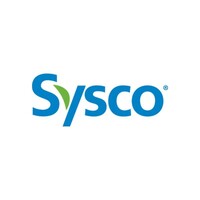
Chefanie
Culinary Lifestyle Brand founded by Stephanie Nass



Culinary Lifestyle Brand founded by Stephanie Nass

Sysco is the global leader in selling, marketing and distributing food products to restaurants, healthcare and educational facilities, lodging establishments and other customers who prepare meals away from home. Its family of products also includes equipment and supplies for the foodservice and hospitality industries. With more than 74,000 colleagues, the company operates 334 distribution facilities worldwide and serves approximately 725,000 customer locations. For fiscal year 2023 that ended July 1, 2023, the company generated sales of more than $76 billion. Information about our Sustainability program, including Sysco’s 2022 Sustainability Report and 2022 Diversity, Equity & Inclusion Report, can be found at www.sysco.com.
Security & Compliance Standards Overview












No incidents recorded for Chefanie in 2025.
Sysco has 127.27% more incidents than the average of same-industry companies with at least one recorded incident.
Chefanie cyber incidents detection timeline including parent company and subsidiaries
Sysco cyber incidents detection timeline including parent company and subsidiaries
Sakai is a Collaboration and Learning Environment. Prior to versions 23.5 and 25.0, EncryptionUtilityServiceImpl initialized an AES256TextEncryptor password (serverSecretKey) using RandomStringUtils with the default java.util.Random. java.util.Random is a non‑cryptographic PRNG and can be predicted from limited state/seed information (e.g., start time window), substantially reducing the effective search space of the generated key. An attacker who can obtain ciphertexts (e.g., exported or at‑rest strings protected by this service) and approximate the PRNG seed can feasibly reconstruct the serverSecretKey and decrypt affected data. SAK-49866 is patched in Sakai 23.5, 25.0, and trunk.
pypdf is a free and open-source pure-python PDF library. Prior to version 6.1.3, an attacker who uses this vulnerability can craft a PDF which leads to large memory usage. This requires parsing the content stream of a page using the LZWDecode filter. This has been fixed in pypdf version 6.1.3.
pypdf is a free and open-source pure-python PDF library. Prior to version 6.1.3, an attacker who uses this vulnerability can craft a PDF which leads to an infinite loop. This requires parsing the content stream of a page which has an inline image using the DCTDecode filter. This has been fixed in pypdf version 6.1.3.
Authlib is a Python library which builds OAuth and OpenID Connect servers. Prior to version 1.6.5, Authlib’s JWE zip=DEF path performs unbounded DEFLATE decompression. A very small ciphertext can expand into tens or hundreds of megabytes on decrypt, allowing an attacker who can supply decryptable tokens to exhaust memory and CPU and cause denial of service. This issue has been patched in version 1.6.5. Workarounds for this issue involve rejecting or stripping zip=DEF for inbound JWEs at the application boundary, forking and add a bounded decompression guard via decompressobj().decompress(data, MAX_SIZE)) and returning an error when output exceeds a safe limit, or enforcing strict maximum token sizes and fail fast on oversized inputs; combine with rate limiting.
OpenBao is an open source identity-based secrets management system. Prior to version 2.4.2, OpenBao's audit log did not appropriately redact fields when relevant subsystems sent []byte response parameters rather than strings. This includes, but is not limited to sys/raw with use of encoding=base64, all data would be emitted unredacted to the audit log, and Transit, when performing a signing operation with a derived Ed25519 key, would emit public keys to the audit log. This issue has been patched in OpenBao 2.4.2.